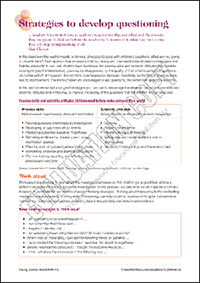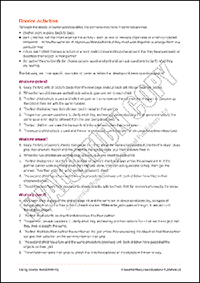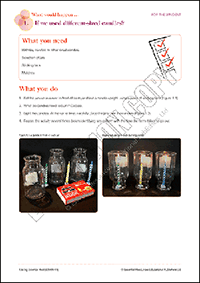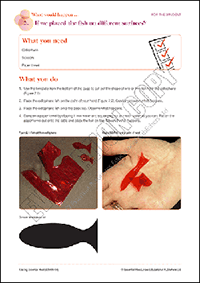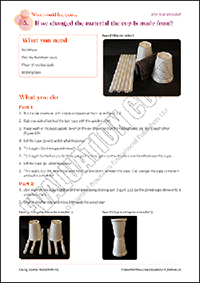
Strategies to develop questioning in Science
Asking questions is an important part of the nature of science: scientists ask questions all the time and it is these questions that initiate investigations. Engaging children in science also means engaging them in asking questions they can then investigate on their own. To do this, they need to learn the skills involved in asking good investigative questions. This unit looks at strategies to develop students' higher order questioning in the science classroom.
Years:
Year 2, Year 3, Year 4, Year 5, Year 6
|
Pages:
7
|
Code: E5989-01
Series: Making Science Real
|
AUD incl GST
|
Add to cart | |
| or more | each |
